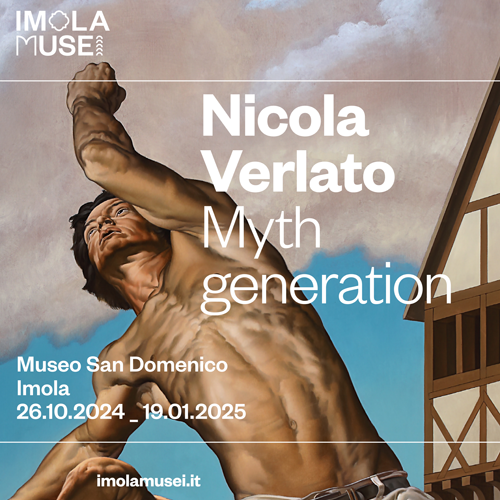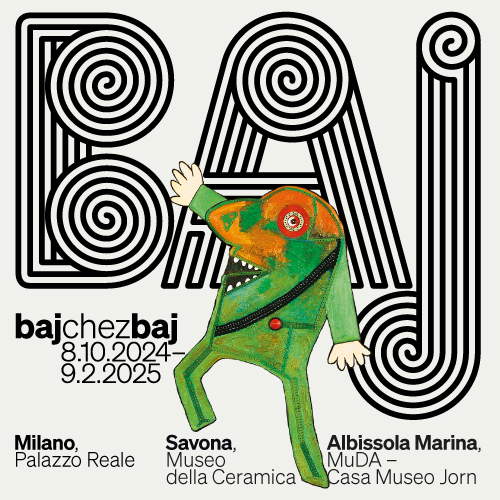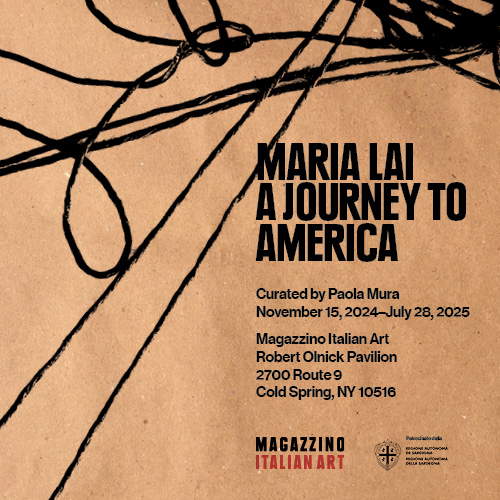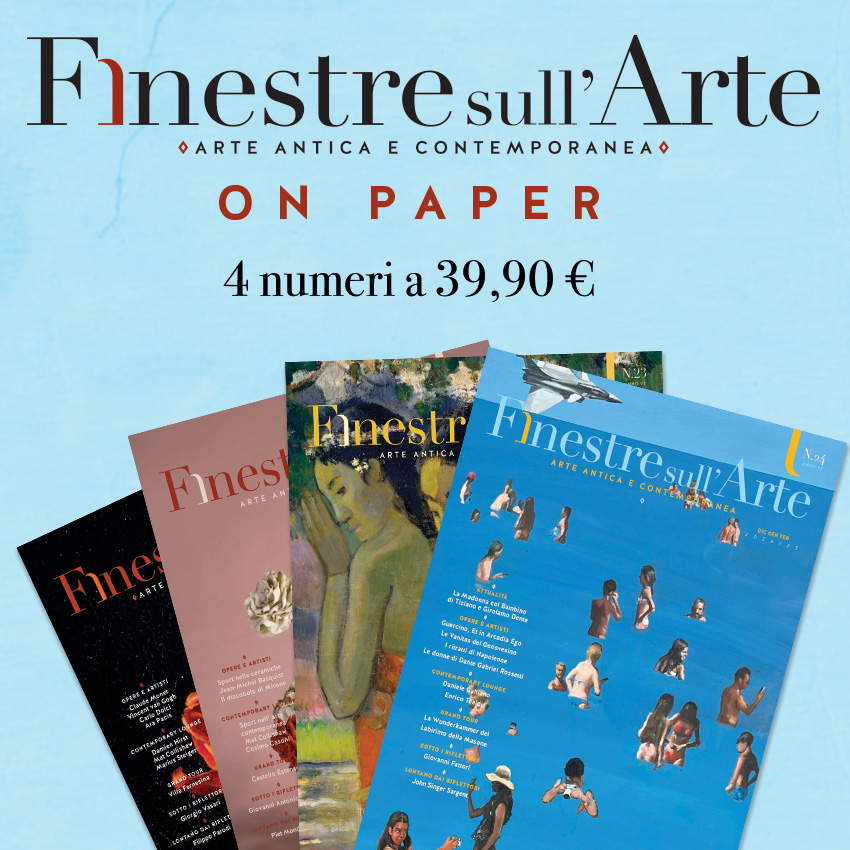What's happening around Documenta, between chain resignations and allegations of control
What is happening around Documenta, the most important international art exhibition after the Venice Biennale? Against the backdrop of the celebrated event held every five years in Kassel, Germany (last edition in 2022), a rather controversial affair is unfolding that started, initially, with a slip-up by the latest curators, the Indonesian collective Ruangrupa, around the Israel-Hamas war. Shortly after the Oct. 7 attacks, in fact, two members of the group put some likes to a video showing people praising free Palestine: this did not please Documenta’s top management who, on Oct. 10, published a statement on the exhibition’s official website condemning the Ruangrupa members guilty of having put likes to an unwelcome video. Ad Andreas Hoffmann, in particular, did not like the timing: just hours after Hamas terrorists entered Israeli territory torturing and killing innocents and taking dozens of hostages, the curators’ like seemed “intolerable and unacceptable.” The likes were later withdrawn and the two members of the group, Reza Afisina and Iswanto Hartono, defended themselves against the accusation of supporting terrorists, saying that they had liked it because they thought the video captured police in the act of dispersing a pro-Palestinian demonstration.
The matter did not end there, however. In mid-November came the resignation of two members of the Finding Committee for the next edition of Documenta, that is, the six-member committee responsible for selecting a new curator: Israeli artist Bracha Lichtenberger Ettinger and Indian poet and art critic Ranjit Hoskoté both resigned within a short distance of each other. Hoskoté had been criticized for signing a “Declaration against the Consulate General of Israel” in 2019 (a petition condemning an event, organized at the University in Mumbai by the Israeli consulate, in which the relationship between Zionism and Hindu nationalism was discussed), which was deemed anti-Semitic because it was linked to the Boycott, Divestment and Sanctions (BDS) movement, a global campaign against Israel that the German government considers, precisely, anti-Semitic. Hoskoté had also been attacked by Claudia Roth last Nov. 10 for signing this petition of hers, and the minister herself had suggested withdrawing state funding for Documenta, so that the exhibition asked Hoskoté to distance himself from that signature.
“The monstrous accusation of anti-Semitism was made against my name in Germany, a country I look upon with love and admiration and to whose cultural institutions and intellectual life I have contributed for several decades as a writer, curator and cultural theorist,” Hoskoté said. “People who have no knowledge of my life and work have judged, denounced and stigmatized me on the basis of a single signature on a petition, taken out of its context and not addressed in a reasonable spirit. I have been written about harshly and condescendingly, and none of my detractors thought it important to ask me for my point of view. I feel strongly that I have been subjected to the proceedings of a mock court. It is clear to me that there is no room in this toxic atmosphere for an articulate discussion of the issues at stake. And now -- in what seems to me to be a failed attempt to salvage a situation that is beyond repair -- I am being asked to accept a broad and untenable definition of anti-Semitism that confuses the Jewish people with the Israeli state; and this, as a result, misrepresents any expression of sympathy for the Palestinian people as support for Hamas.”

Lichtenberger Ettinger’s resignation is not related to Hoskoté’s but is nevertheless somehow connected to the Israel-Hamas war. Indeed, after the October 7 attack, the Israeli artist found it difficult to continue working and asked Documenta for a break in the research process, which was not granted. Hence, the decision to resign. “Recently I asked to slow down the process. The art world as we imagined it has collapsed and is now fragmented, I wrote and added, ’What can art bring to our dark ages? The question of the meaning of being human is closely related to the meaning of art. Artists are not here to decorate politics. The function of art is not to aestheticize political ideas’ (W. Benjamin) [...] The situation in the Middle East is tragic in every respect. Innocent civilians have suffered and died, and my heart cries for every death on every side. Every life is precious. I shared with you my inability to be effective in the last series of meetings (Oct. 12-13), which took place despite the fact that I could not arrive in person, in Germany, because you informed me that my flights had been canceled, and which I had to attend via Zoom, paralyzed under rockets, with details of the massacre committed by Hamas on Israeli civilians, women and children, and the abduction of children, infants and civilians being streamed on my screen during our lunch and coffee breaks, just days after the Hamas massacre that started the tragic war [...]. The future documenta has been on my mind incessantly for the past 7 months. We have all been working hard. Unfortunately, today, I feel I can no longer continue to contribute to the process.”
The resignation of the two members triggered a real earthquake, since a few days later all the other members of the selection committee (Gong Yan, Simon Njami, Kathrin Rhomberg, and María Inés Rodríguez) also resigned their positions, just three days after their colleagues, who had resigned on November 13. The triggering reason? Precisely the affair that has erupted around Hoskoté: it is believed that political responsibility is being improperly assumed and, in essence, that the debate is overly polarized and oversimplified. The group signed a letter stating that “if art wants to take into account the complex cultural, political and social realities of our present, it needs appropriate conditions that allow for its diverse perspectives, perceptions and discourses. The dynamics of the last few days, with the unchallenged media and public discrediting of our colleague Ranjit Hoskoté, which forced him to resign from the search committee, makes us strongly doubt that this prerequisite for a future edition of Documenta is currently provided in Germany. Art requires a critical and multi-perspective examination of its various forms and contents in order to resonate and develop its transformative capacity. Categorical and one-sided reductions and oversimplifications of complex contexts threaten to nip any such examination in the bud. Documenta has a long tradition of open and intellectually responsible discourse. From the beginning, the time and place of its institutional founding after World War II indicated one of Documenta’s defining political principles: to constantly renegotiate the world through the lens of art and with explicit awareness of the unimaginable horrors that ideological blindness makes possible. We understand that, in light of its past, Germany has definite social and political responsibilities. The great sensitivity to all anti-Semitic tendencies eloquently testifies to the extent to which the nation has internalized this responsibility. The continued fulfillment of this same responsibility deserves the utmost appreciation, especially now, when alarming signs of deeply rooted anti-Semitism are once again being felt around the world. At the same time, however, this awareness of special responsibilities runs the risk of being misused for the politics of opinion in order to suppress undesirable approaches and their broad and open discussion from the outset. Instead of debate and discussion, oversimplification and prejudice are thus all too easily substituted. It is this emotional and intellectual climate of oversimplification of complex realities and the resulting restrictive limitations, which has been prevalent since Documenta15 and especially against the backdrop of the current crises our world is facing, that makes it impossible for us to conceive of a strong and meaningful exhibition project, and consequently to allow a responsible continuation of the selection process to determine a curatorial concept for Documenta16.”
The accusation coming from the group is a strong one: according to the four members, there would be no room for the exchange of ideas and complexity in Germany. “Under the current circumstances,” the former committee members conclude, “we do not believe that there is room in Germany for an open exchange of ideas and the development of complex and nuanced artistic approaches that documenta artists and curators deserve. We do not believe that acceptable conditions can be created in the short term, and we feel that it is disrespectful to Documenta’s legacy to settle for the current situation.”
But that’s not all: last Nov. 22 another tile fell on Documenta, when the two international curators Manuel Borja-Villel and Vasif Kortun disclosed the treatment meted out to them by Documenta’s management. According to the two professionals’ accounts, Documenta invited them separately to formulate a proposal for Documenta 16. The two found out that they had both been selected and, having found that they had a common vision, decided to submit a joint project, and inquired whether it would be possible to submit a joint proposal. After receiving a positive response from one of the selection committee members, they sent the proposal, which was confirmed and shared with the selection committee. Management, however, reportedly responded stating that they would not consider the proposal because the invitation was personal and not shareable. After several email exchanges, the management would still be of the opinion not to consider Borja-Villel and Kortun’s proposal. And they, too, wrote an open letter.
“What was once a place of experimentation and autonomy is becoming a place of control. Historically, starting with Documenta 5, the director and his team had complete freedom of creativity. Instead, the function of the new director of Fridericianum and Documenta Gmbh seems to be one of control and political oversight,” the two write. “To be removed on a formality once the committee had already discussed the project was disturbing. The latest news about Documenta, Documenta’s denunciation of Ranjit Hoskote, Bracha Ettinger’s resignation, then Hoskote’s, followed by the rest of the Findings Committee, is evidence of a crisis that we believe is not artistic but political. Although it exposes us, we consider it ethical to make it public. At stake is not only the autonomy of an institution, which has been fundamental to all of us, but also the very survival of Documenta. As in its most extraordinary editions, the importance of Documenta lies in its ability to address the role of art and offer tools for understanding changes in history. As we wrote in our proposal, Documenta should adapt to alternative ways of understanding the world. We all stand to lose if Documenta avoids questioning the status quo and limits itself to social scripts. Right now we have more questions than answers. What led the committee to resign and how did the persecution of Ranjit Hoskoté begin? Was there someone who ordered a sinister investigation to unearth an obscure 2019 document and make it public at the appropriate time? What exactly is the role of the director of the Museum Fridericianum and Documenta Gmbh? Is he there to facilitate the implementation of the chosen project or exactly the opposite? How did the issue of confidentiality arise once our proposal was read? Perhaps the ideas put forth or the list of proposed collaborators were not in line with the new spirit of Documenta. And finally, do German officials understand that Documenta, like any museum or art center, is a place where society can confront its terrors, desires and hopes, and can only do so when freedom of creativity is guaranteed? Unfortunately, this echoes the witch hunt targeting all public intellectuals in Europe and abroad who call for peace in Palestine. There also seems to be interest in filling a space that has been left empty.”
The discussions around Documenta, in short, do not seem to be subsiding and, indeed, it seems that the debate is getting wider and wider: according to some, even the freedom of art is at stake. How will Documenta manage to get out of this situation? We shall see...
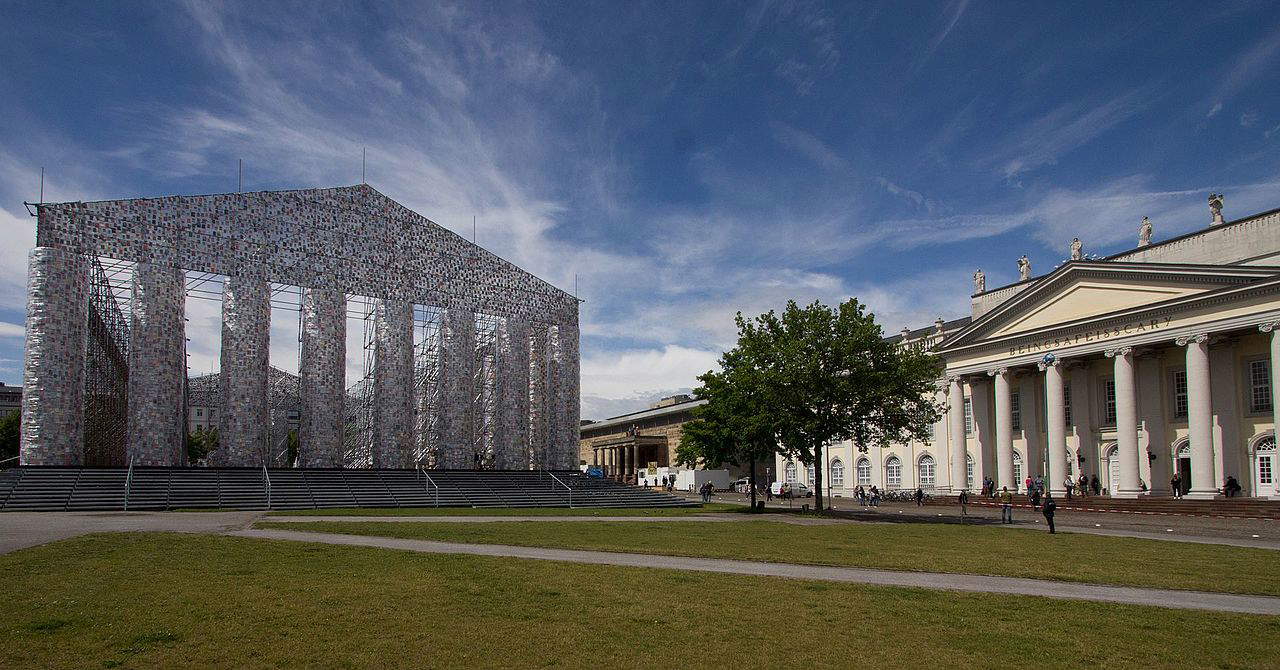 |
| What's happening around Documenta, between chain resignations and allegations of control |
Warning: the translation into English of the original Italian article was created using automatic tools. We undertake to review all articles, but we do not guarantee the total absence of inaccuracies in the translation due to the program. You can find the original by clicking on the ITA button. If you find any mistake,please contact us.





